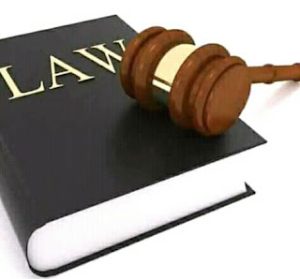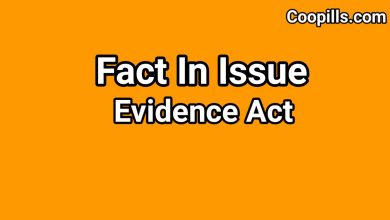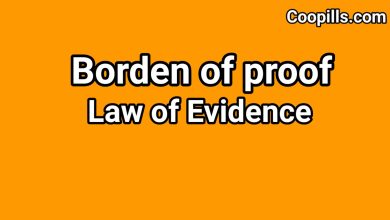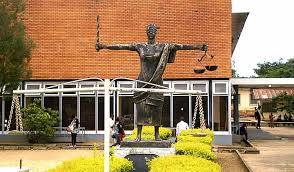Law of evidence in nigeria
In this article we shall be looking at law of Evidence in Nigeria, Definition, Scopes and it’s Rules.

Table of Contents
What is Evidence
PHIBSON ON EVIDENCE stated that, evidence means “the testimony whether oral, documentary or oral, which may be legally received in order to prove or disprove some facts in dispute”
CROSS stated that evidence is “the testimomy. hearsay, documents, things and facts which a court will accept as evidence of fact in issue in a given case.
Working Definition of Evidence:
Evidence is the means by which fact in issue are established by a judicial tribunal. such evidence could be oral testimony of a person who actually perceived the facts, i.e. through any one of the senses, or documentary evidence which is the production of documents to prove facts which are in issue, or real evidence which is the production of
material objects other than documents. in sumary, the law of evidence deals with the use of evidence to establish or prove fact on which Claims, charges and defences of litigants are based before a judicial tribunal.
What is the use of Evidence in legal
Practice?
A legal practitioner would lose his case without his being able to do well in evidence. Everything a lawyer needs to do in th law court hinges upon the law of evidence. This is because evidence cuts across all facts relating to legal practice whether criminal or civil.
It is often said that a judge cannot penetrate human mind.
He can only go by the evidence adduced before him by the lawyer.
The basic questions a lawyer must ask himsef are these:
1. What am I supposed to do?
2. How am I supposed to go about doing such?
Advocacy is the bedrock of legal practice. Hence, a lawyer should be very articulate and skillful in the act of advocacy.
In every given case, a lawyer should lay proper and adequate foundation before presenting his evidence in court.
Scope of Law Evidence
In relation to legal procedings, there are two broad divisions of law namely subtantive or abjectival or adjective law.
(a) Substantive law: this defines rights, duties and liabilities of parties to a transaction in issue.
Substantive law is a generic term embracing such subject as the law of torts, contract and crimes. It is also concerned with statements of rights, duties and liabilities are grounded.
(b) Adjectival or adjective law:
This governs the machinery by which substantive law is applied in practice. it regulates the conduct of litigation and it is concerned with establishing the facts upon which rights, duties and liabilities are founded in essence of adjectival laws provide the platform upon which duties and liabilities are grounded. Adjectival law therefore comprises of procedure and evidence, the term procedure is often used to embrace evidence espcially in proceedings where evidence is required.
Rules of Evidence
The rules of evidence are said to have evolved or have been formulated to assist in the determination of four principal problems:
1. Upon whom rests the burden of proving facts?
The answer to the question is not a clear-cut one. for example A2Z is accused by LBC of stealing his shirt. the burden of proof rests on LBC. Again, A2Z is accused of murder, and he pleads insanity as a defence this is a unique case as the burden of proof would rest on A2Z since he is in best position to prove his insanity this is against the background of the presumption of sanity as regarding every man that is seen on the street.
2. What facts may be proved?
Generally, party must prove every material that upon which he intends to rely by adducing sufficient evidence for example LBC is accused of stealing A2Z car the prosecution must establish by adducing sufficient evidence that LBC fraudulently took A2Z car or that LBC fraudulently converted same to his own use or to the use of another person. But, there are exceptions to these rules especially in cases of facts of which the courts may take judicial notice or in cases of civil proceedings where there are formal admissions of fact made before the pleadings.
3. What facts ought to be excluded from court’s cognizance?
Not all facts relating to a case in a matter may be presented before the courts. Generally, proofs of facts in issue and of facts relevant to facts in issue are admissible.
for example, the fact that Bamama was seen driving A2Z car is relevant to the fact in issue which is the theft of the car. the point that not all facts relating to a case is presented to the law court, is responsible for the general
rule that parties to an action are not generally allow to give evidence of their reputation, painting them to be of good character.
4. What modes of proof are acceptable?
As a general rule, the Nigerian legal system recognises particular kinds of proof only. For example, proof by oral evidence, proof by real evidence, proof by electronic gadgets, proof by documdntary evidence, and in modern times. However, their are exceptions to these wide general rules.
Question
What should a cousel do when his client in a criminal case admits to him in chamber that he indeed committed the offence charged?
(a) Advise him to raise a preliminary objection upon arrangement
(b) Seriously consider declining the brief
(c) Advise him pleade not guilty and allow the prosecution prove its case
(d) Advise him to plead guilty giving insanity as excuse.
Sources of Nigeria law of evidence
The main source of Nigeria law of evidence is evidence act. The Act passed in 1943 as “evidence ordinance, came into operation in 1945. The provisions of that Act were taken from the Digest of the law of evidence of Sir James fitze Gerald Stephen.
Before 1945, the law of evidence applicable in the magistrate court and in the high Court, then know as the supreme court, was the English common law of evidence. The authority for the application of English common law of evidence are contained in some of the legislation enacted in the colonial days e.g S.10 provincial Court ordinance 1914, S13 protectorate courts ordinance 1933; S30 magistrate court ordinance 1943; S14. Supreme court ordinance 1943; Ordinance No.4- S.4 of 1876 provided for the application of the English common law, Equity and statute of General Application (SOGA) passed on or before 1900.
At the time of Passing of the Act, the country had a unitary system of government, therefore, its application was countrywide. This universal application of the Act continued also after the introduction of federalism, and this was brought about in this manner. Evidence Act is the main source of law of evidence in Nigeria.
However, the English common law of evidence or any relevant statute may be resorted to S.3 of the evidence Act States thus:
” Nothing in this act shall be prejudice the admissible of any evidence which would, apart from the provision of the Act, be admissible ”
The evidence which would have been admissible apart from the provision of the Act is evidence admissible under the common law and under any other Nigeria statute. The explanation for this is from the fact that English common law of evidence was in operation before the enactment of the Nigerian evidence Act S.3 (a) is essential useful where the Nigerian evidence Act has not provide for admissibility of any fact or matter which has been provided under the English common law rule. West African Court of Appeal in the case of Onyeanusi vs Okpukpara (1953) 14 WACA 311,









